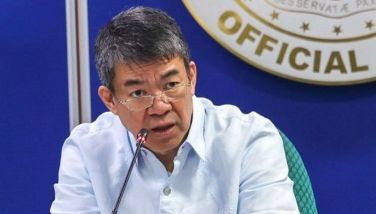Post-Prigozhin

Vladimir Putin has survived the most dramatic and direct challenge to his 23-year reign, and the mutinous mercenary oligarch, Yevgeny Prigozhin, is in the process of being disarmed. Calm has been restored, at least on the surface. And in Ukraine, the war grinds on. Now that the dust has settled, has the aborted insurrection in Russia changed anything? What have we learned?
The insurrection reminded us that Russia’s army is good at inflicting punishment on stationary battlefield targets and digging in to defend territory, but it’s hardly a nimble fighting force, and its leaders don’t react quickly or effectively to the unexpected. Russian artillery continued to pummel buildings inside Ukraine before, during and after Prigozhin’s insurrection. Yet, the response to the mutiny itself was entirely ineffectual until Wagner’s convoy stopped its approach 300 kilometers from Moscow.
Russian forces did fire on advancing Wagner fighters, but they hardly slowed Prigozhin’s men down, even after Wagner shot down multiple Russian helicopters and killed at least a dozen Russian airmen. Prigozhin backed off only when he realized he had no friends in Moscow willing to help to clear his path into the capital. Russia’s citizens are left to wonder how Wagner troops took over the military’s headquarters in a major Russian city without firing a shot and traveled virtually unchallenged through 600 kilometers of Russian territory with virtually no opposition. Putin surely wants answers too.
In the aftermath, Russia’s president must also be wondering what those in authority around him are really thinking. Aside from propaganda posturing about “Russian unity,” Putin surely wants to know just how much sympathy Russia’s soldiers feel, if not for Prigozhin personally, at least for his view of Putin’s defense minister, Sergei Shoigu, and his military chief, General Valery Gerasimov. This mutiny might well have Putin questioning how committed Russia’s soldiers and even their junior officers are to seeing this war through. If he’s not worrying about these things, he should be.
It’s also clear that if some future threat emerges to Putin personally, it won’t come from a slow-moving convoy making its way up a highway before a global audience on the internet. The challenge, if it comes, will appear quickly and from an unforeseen direction. That will happen only if people at the top of Russia’s power structure come to believe that only by ousting Putin can they protect what they have.
To be clear, no such threat is visible on the horizon. Putin appears to have begun purging officials he feels have failed him, or might do so. But Putin has never been as vulnerable as he is now, particularly if Ukraine can score more gains on the battlefield in coming months.
Another reason Putin is vulnerable: His foreign friends have not done anything to help him in this difficult moment. Yes, Putin knows he can count on the not-quite-sovereign Belarussian President Alexander Lukashenko to follow his orders, and it’s convenient to make him responsible for keeping an eye on Prigozhin. But support from other friendly governments has mostly been absent. The leader of another former Soviet republic, Kazakhstan, dismissed the mutiny in Russia as a purely internal matter. That’s especially remarkable since Russia sent thousands of troops to protect President Kassym-Jomart Tokayev from his own protesters just last year. Turkey’s Recep Erdogan issued a friendly announcement of concern and support for Putin, but with little further comment.
Most importantly, Xi Jinping’s China is happy to support Russia as long as profitable opportunities, such as the chance to buy large volumes of Russian oil at bargain prices, far outweigh any costs from a too-close association with Russia’s invasion. Xi is not taking on major risks for Putin, such as providing Russia with heavy weapons. As a result, Putin’s isolation is deepening.
Yet, there is another lesson from the uprising and its aftermath that should give heart to those hoping for a negotiated end to the war in Ukraine. Faced with an existential crisis, Putin will bargain and compromise. The Russian president has made it clear he believes Prigozhin is guilty of high treason and personal treachery. Yet, at least for now, Prigozhin has not been killed or arrested, probably because Putin knows that Prigozhin enjoys sympathy from an unknown number of people, including soldiers, and because persuading his Wagner mercenaries to sign on with the Russian military is important for the longer-term future of the war. In other words, however angry Putin may be, his response has been calculated, not rashly destructive.
Perhaps this signals that if Ukraine’s counteroffensive eventually scores big gains, and it becomes clear that Russia can’t achieve much more on the battlefield without conscripting Russians in large enough numbers to trigger genuine unrest at home, he might make a deal. Putin’s response also eases NATO fears that he might escalate the war in dangerous directions, by using a tactical nuclear weapon, for example. Putin’s pragmatic choices amid an ugly uprising that might have triggered a battle with thousands of Russians shooting at each another suggest that when Putin is severely tested, he’s prepared to back down and put his regime’s, and his own, survival first.
In the meantime, the war continues. Ukraine continues to ramp up its counteroffensive at a deliberate pace, and Russian troops are bracing to absorb more punishment. Putin remains firmly in charge. Prigozhin has been boxed in. Western support for Ukraine remains undiminished. It’s tempting to feel that little has changed. But underneath the surface, Putin’s vulnerability has been revealed. It’s a turning-point moment for the war and for Russia’s future.
* * *
Ian Bremmer is the president and founder of Eurasia Group and GZERO Media, and the author The Power of Crisis.
- Latest
- Trending




























